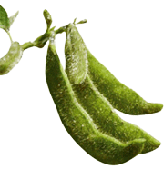New report launched on soy expansion in Northwest Argentina
A new report has been launched titled "Soy and Agribusiness Expansion in Northwest Argentina - Legalized deforestation and community resistance. The cases of the Wichí communities of the Itiyuro River Basin and Misión Chaqueña, the Creole families of the Dorado River Basin and the Guaraní communities of El Talar". The report is published by CAPOMA (Argentina), La Soja Mata and Chaya Comunicación (Argentina), with the support of: BASE Investigaciones Sociales (Paraguay)
This report provides important insights into the process of soy and agribusiness expansion, deforestation and eviction of indigenous and rural communities in a forgotten region: North West Argentina. This region covers the Chaco, the Yungas forest and the Andes ecosystems and is inhabited by a large number of indigenous communities. The report focuses on the transition zone between the Yungas forest and the Chaco plains. The report shows how the regional Land Use Planning excercises, demanded by the Argentinean national government, turned out into a new license for massive deforestation and evictions of communities.
You find the report attached below the summary.The Spanish version can be downloaded from: http://www.chayar.com.ar/index.php?option=com_content&view=section&id=8&...
Summary
Northwest Argentina has become a major region of agribusiness expansion. This has been promoted by agribusiness companies, the local ruling elite, local government institutions and media, and even some ‘sustainable development’ foundations. New infrastructure projects spur the export of soy and other commodities from the region.
Soy and sugar cane expansion have currently become major drivers for the rampant deforestation and displacement of indigenous and rural communities in the provinces of Salta and Jujuy. Deforestation is also contributing to climatic disasters such as stronger floods and droughts. These communities are struggling for land through legal claims and direct actions. Officially, indigenous peoples’ rights to their territory in Argentina are enshrined in various national and international laws and agreements, but these are often not respected.
Argentina’s new Forest Law, adopted late 2007 in order to protect native forests, obliged each province to develop a Land Use Plan. The province of Salta gave out a massive number of deforestation permits just before the new Forest Law was adopted. Environmental Impact Assessments carried out for these permits by consultancies were riddled with irregularities. Salta’s Land Use Plan did not meet the required effective participation of indigenous and rural communities and its final version will allow further deforestation of large areas. This would severely impact the remaining indigenous and rural communities who have traditionally lived on these lands and depend on these forests for their livelihoods and culture. Salta’s Land Use Plan was therefore strongly denounced, and in response Argentina’s Supreme Court early 2009 has temporarily put a halt to deforestation in some departments in Salta.
The report contains four case studies that provide a more detailed insight into the land struggles of indigenous and rural communities in Salta and Jujuy (the Itiyuro River Basin, the Wichí community Misión Chaqueña, the Creole families of the Dorado River Basin and the Guaraní community of El Talar). Since legal claims have in most cases not led to satisfactory results, communities are often forced to resort to direct actions like manifestations, blockading roads and fence construction to enforce their rights.
| Adjunto | Tamaño |
|---|---|
| Soy_Expansion_Northwest_Argentina.pdf | 1.84 MB |



